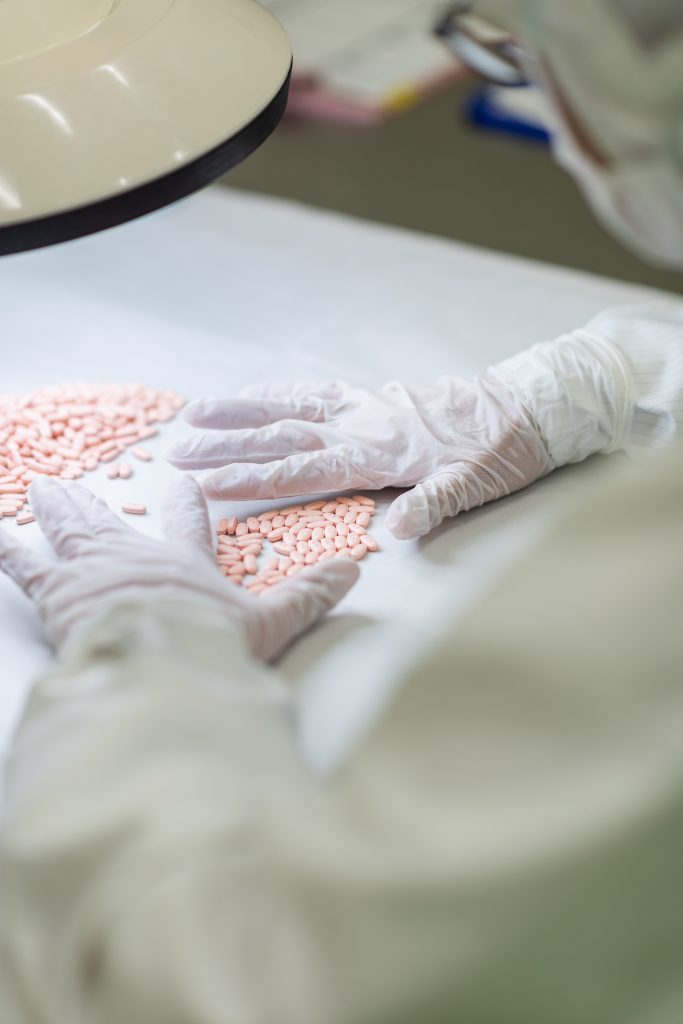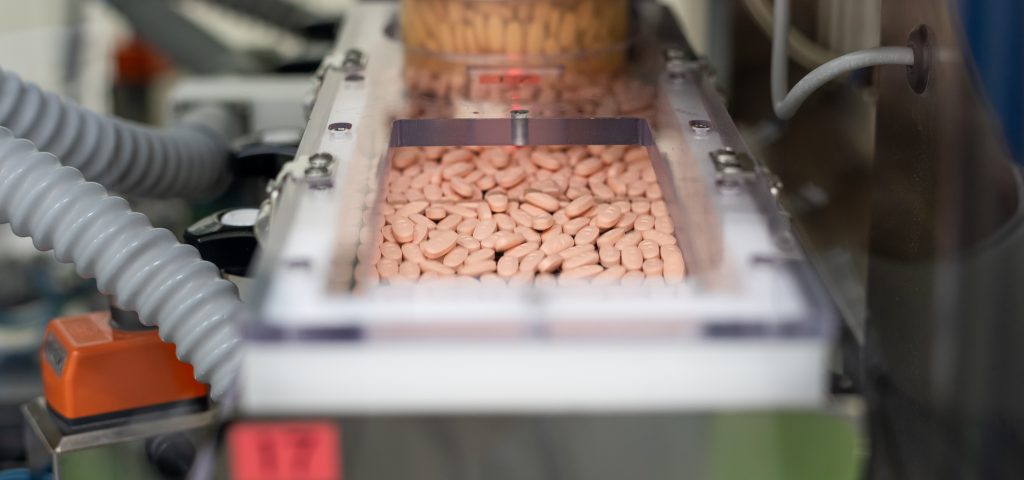Oral solid dose (OSD) manufacturing is a cornerstone of the pharmaceutical industry, responsible for producing the most common dose forms prescribed today. From tablets and capsules to soft gels and gummies, oral solid dosage forms are a tried-and-true method of drug delivery, with a history that spans nearly two centuries. This guide will provide an overview about what is it OSD, the manufacturing processes, and the challenges faced by pharmaceutical companies.
What is Oral Solid Dose Manufacturing?
Oral solid dose (OSD) manufacturing refers to the process of producing drug products that are ingested orally and absorbed through the digestive system. These dosage forms include tablets, capsules, and other solid forms that are designed to deliver the active pharmaceutical ingredient (API) efficiently to the bloodstream.
The quality of raw materials used in these processes is crucial for ensuring the efficacy and safety of the final drug products. The oral solid dosage form is favored for its ease of administration, stability, and cost-effectiveness, making it the preferred choice for a wide range of therapeutic applications.
The Importance of Oral Solid Dosage Forms
Oral solid dosage forms dominate the pharmaceutical industry for several reasons:
- Ease of Administration: Patients find it convenient to take oral solid drugs, improving patient compliance.
- Distinguishability: Tablets and capsules can be easily distinguished from one another, reducing the risk of medication errors.
- Established Manufacturing Processes: The manufacturing processes for oral solid dosage forms are well understood, allowing for efficient production and quality control.
Tablet Manufacturing at Our Kawagoe Facility
Our Kawagoe facility is specialized in the production of tablets, offering a comprehensive range of services throughout the entire lifecycle of oral solid dosage forms—from initial production to final packaging. Our facility integrates individual batch unit operations into a continuous manufacturing format, enhancing efficiency and product quality.
Types of Tablets We Produce
- Uncoated Tablets: Simple and effective, these tablets are produced with precision to meet specific therapeutic needs.
- Film-Coated Tablets: We offer both aqueous and solvent-based film coatings, enhancing the stability, taste, and appearance of the tablets.
- Orally Dissolving Tablets (ODT): Designed for rapid dissolution in the mouth, ODTs are particularly beneficial for patients with difficulty swallowing.
- Capsules: Our capsule production line caters to various formulations, providing flexible solutions for different APIs.


Expertise in Tablet Manufacturing
Our expertise in tablet manufacturing is underpinned by our ability to handle small to large-scale commercial manufacturing projects. This scalability is crucial for meeting the diverse needs of our clients, whether they require small batches for clinical trials or large volumes for commercial distribution. Our tablet compression process is supported by extensive granulation expertise, including the use of semi-continuous techniques that enhance both the efficiency and quality of our production. Whether it’s through direct compression or more complex processes, we ensure that each tablet meets stringent quality criteria.
Manufacturing Processes of Tablets
We use various methods to produce tablets, from manufacturing until inspection process and packaging.
- Granulation and Compression: We ensure the highest quality through meticulous granulation and compression processes, crucial for producing durable and effective tablets.
- Printing: Our advanced printing technology allows us to process 3,480 tablets per minute, ensuring clear identification and branding of each product.
- Visual Inspection: Every tablet undergoes a rigorous inspection process, with a capacity to visually inspect 10,000 tablets per minute, ensuring that only the highest quality products reach the market.
- Packaging: Our Kawagoe facility handles both blister and bottle packaging, with primary and secondary packaging processes tailored to preserve the integrity of each tablet or capsule. We achieve high-speed packaging, with a maximum capacity of 600 blisters per minute, ensuring efficient and timely delivery of products to our clients.
Quality Control at Kawagoe
We employ advanced techniques such as High-Performance Liquid Chromatography (HPLC) and dissolution testing to verify that each batch of tablets meets the required quality standards. These tests are crucial for ensuring that the active ingredients in our tablets are consistently effective, providing the therapeutic benefits that patients need.
Addressing the Challenges of Oral Solid Dosage Manufacturing
Oral solid dose manufacturing presents several challenges, from ensuring consistent quality across large batches to managing the complexities of continuous manufacturing. One of the most significant challenges is maintaining the stability of the drug substance throughout the manufacturing process. This requires careful control of environmental factors such as temperature and humidity, as well as the use of robust analytical methods to monitor the quality of the product at every stage.
Another challenge is the development process for new drugs, particularly those that require specialized dosage forms. The need to balance efficacy, patient compliance, and cost-effectiveness can make the drug development process particularly complex. However, advancements in manufacturing technology are helping to address these challenges by enabling the production of more sophisticated and effective drug products.
The Future of Oral Solid Dose Manufacturing
The future of oral solid dose manufacturing is bright, with continuous innovations driving the industry forward. The adoption of continuous manufacturing, advancements in process control, and the development of new dosage forms are all contributing to the evolution of the pharmaceutical industry. As technology continues to advance, we can expect even greater improvements in the efficiency, quality, and cost-effectiveness of OSD manufacturing.
Oral solid dosage forms remain the most common dose form in the pharmaceutical industry, thanks to their ease of use, cost-effectiveness, and well-established manufacturing processes. However, the industry continues to evolve, with continuous manufacturing and innovative technologies playing a crucial role in meeting the challenges of modern drug development.
As a leading contract development and manufacturing organization (CDMO), we are committed to staying at the forefront of these advancements, offering our clients a comprehensive range of manufacturing and control processes that ensure the highest standards of quality and efficiency.
FAQs about Oral Solid Dose Manufacturing
What is oral solid dose manufacturing?
Oral solid dose manufacturing refers to the production of drug products that are ingested orally and absorbed through the digestive system. This includes tablets, capsules, and other solid forms.
What are the benefits of continuous manufacturing in oral solid dosage production?
Continuous manufacturing offers several benefits, including improved efficiency, reduced production costs, and more precise control over the manufacturing process. It allows for a single continuous process that enhances the quality and consistency of the final product.
How can be ensured the quality of oral solid dosage forms?
Thanks to the implementation of rigorous control processes throughout the manufacturing process, including the use of advanced analytical methods, process validation, and stability testing. Current good manufacturing practices (cGMP) need to be followed in order to ensure our products meet the highest quality standards.
What are controlled release formulations?
Controlled release formulations are designed to release the active pharmaceutical ingredient (API) gradually over time, providing a sustained therapeutic effect. They are particularly useful for drugs that require consistent plasma levels over an extended period.
What role does tablet compression play in oral solid dosage manufacturing?
Tablet compression is a critical stage in the production of oral solid dosage forms. It involves compacting the granulated mixture into a solid tablet, ensuring it meets the required acceptance criteria for weight, hardness, and disintegration time.
What challenges are associated with oral solid dosage manufacturing?
Some challenges include ensuring consistent quality across large batches, maintaining the stability of the drug substance, and managing the complexities of continuous manufacturing. Advances in technology and robust quality control processes help address these challenges.
